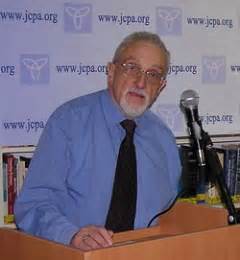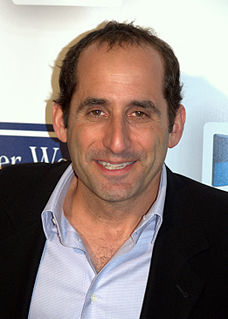A Quote by Sadakat Kadri
The politicized version of Shia Islam that we see in the Islamic Republic post-1979 clearly is very conservative, but, there are other things one could say about Ayatollah Khomeini's concept of a Shia state because that in itself is a blasphemy as far as most Shia clerics are concerned. There's a theory that he developed in the early 1960s in the town of Najaf talking about - well not liberalism, necessarily, but flexibility though.
Related Quotes
And on this issue of the Shia in Iraq, I think there's been a certain amount of, frankly, Terry, a kind of pop sociology in America that, you know, somehow the Shia can't get along with the Sunni and the Shia in Iraq just want to establish some kind of Islamic fundamentalist regime. There's almost no evidence of that at all. Iraq's always been very secular.
[A conflict of Sunni vs. Shia] is in the mind of the Saudis, and this is in the minds of the Wahabists.
[The Iranians] actually what they are doing is the opposite. They tried to open channels with the Saudi, with many other Islamic entities in the region in order to talk about Islamic society, not Sunni and Shi'ite societies.
One of things that surprised me when I was in Iran was to find out that the country finances seven times as many sex change operations as the entire European Union. And the reason for that is because Ayatollah Khomeini himself, in the early 1960s, in the same time that he was developing this other idea of an Islamic state, also hit upon the idea that if a person is born into the wrong sex, it was entirely proper for them to change sex.
Right, because they're looking at also organizing the Sunni tribes up around Mosul to take back that city as well. That's the second largest city in Iraq. That's going to be a very, very tough fight. And the Shia militias were not used in Ramadi, and we're told by the Iraqi generals that they don't want any Shia militias up in Mosul, either, to take back that city. So - but again, that's going to be a very, very tough fight.
Look at Ayatollah Khomeini's revolution and the slogans that they used: anti-imperialism; anti-colonialism; the struggle of the have-nots against the haves; the state monopoly over economy, which was very much patterned after the Soviet Union. All of these things did not come out of Islam. Islam is not that developed.
The Iranian people were converted to Islam not very much longer after the conquest of the Arab world by Islam, but they refused to adopt the Arabic language, and it's a great point of pride to them that Persian culture and the Persian language and Persian literature survived the conversion to Islam. And the conversion to Islam also was for most of them not the Sunni majority form, but the Shia one. So there's a great discrepancy between Iranian society and many other of what we think of as Arab Muslim States and systems.
When I first raised the issue of the so-called Islamic State at the Munich Security Conference in February, speaking about its economy, its flexibility and pathology, people thought I was trying to scare them. But now we have experienced just that. If al-Qaida was version 2.0 of terror, then the Islamic State is version 5.0.
When the Islamic revolution began in 1979 under the leadership of Ayatollah Khomeini, it aroused considerable admiration in the Arab street. It presented a model of organised popular action that deposed one of the region's most tyrannical regimes. The people of the region discerned in this revolution new hope for freedom and change.






























